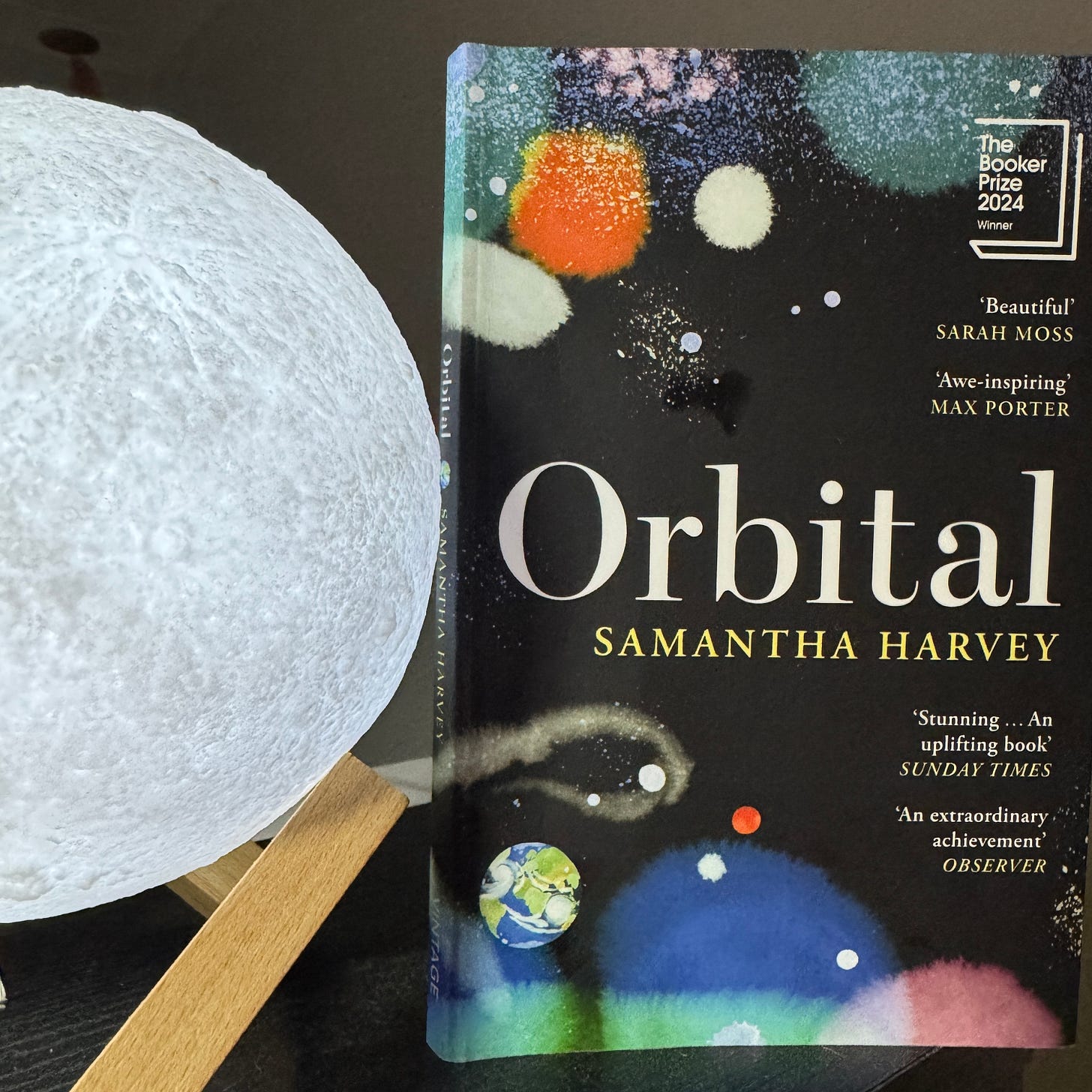Orbital is the 2024 Booker Prize winning novel by Samantha Harvey and one I had been looking forward to reading when the time was right. I naively thought that, at just over 130 pages, this would be an easy, quick read - but it took a week.
Orbital tells the story of a singel day on the International Space Station (ISS), currently housing six space scientists - astronauts Shaun, Chie, Pietro and Nell, and cosmonauts Anton and Roman. In a single (earthly day) they orbit the earth 16 times - with sunrise and sunset occurring on 16 occasions.
On this particular day, one of the crew are informed that their mother has died, and while the grief of that loss runs through the story, it is not the central story. Instead, this novel is a pondering of what life is and what it truly means, from the perspective of outside earth.
From their view, there are no lines on maps. No wars. No religious or racial difference. From the ISS, they see weather.
They see oceans.
They see mountains.
They see lights.
They see humanity - in all its glory and destruction.
Given the shorter nature of Orbital, I thought I'd have it read in a day. What I did not account for was the deeply emotional responses I had to each orbit, and the stories that accompanied each one. Told from the perspectives of all six characters at different parts of the day, it is impossible not to feel a connection to each, and the lives that they've lived that take them to the most extraordinary juncture possible - living off earth. I needed time to think and feel each orbit, and I am glad I gave myself that space. I laughed and I cried (quite literally). I allowed my mind to wander into the possibilities that space brings (hint: I have wanted to be an astronaut since childhood and I'd board a rocket today if I had the opportunity).
I also thought about what it must be like to live on the ISS and then return to earth. Does it make one more grateful for earth's beauty? Do they despair for the state of our planet? Do geo-political conflicts make more sense or none at all?
I cannot imagine what it would be like to leave the earth and look back upon it from the blackness of the galaxy. I cannot think of anything I'd like to see with my own eyes more. I don't think I'd want to return to earth - I think that's the way I'd want it all to end. We humans are but specks of dust in microseconds of the existence of the galaxies. What greater way to end that microsecond?
Samantha Harvey has done some extraordinary research in writing this book. She captures what I imagine life on the ISS to be like - and I don't imagine it's all fun all of the time. The impact on the mind and body is significant and yet she writes it like it's first hand experience. That takes some incredible writing skill.
Those who know me, know I am a huge fan of Canadian Astronaut and speaker, Colonel Chris Hadfield. I have one of his photographs as a poster sized, framed reminder of the fragility and smallness of life on our bedroom wall - the earth with the moon in full view. I love that photograph and Colonel Hadfield's books. I was lucky enough to see him speak in Melbourne several years ago and I am excited to be doing so again in June, this time in Sydney. His ability to not only tell stories from his life as an astronaut, as well as what it has taught him, is well worth listening to. Reading Orbital really reminded me of him and I would love to ask him if he has read it and what he thinks.
Orbital was described on the cover as "luminous" and I think that might be the perfect word for it. I encourage you to read it and take flight.



